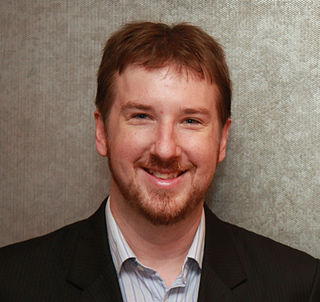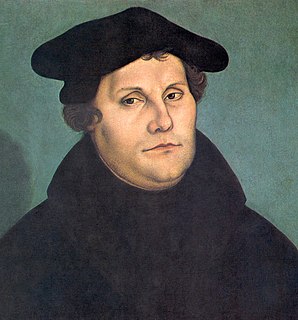
Lucius Caecilius Firmianus Lactantius was an early Christian author who became an advisor to the first Christian Roman emperor, Constantine I, guiding his religious policy as it developed, and a tutor to his son Crispus. His most important work is the Institutiones Divinae, an apologetic treatise intended to establish the reasonableness and truth of Christianity to pagan critics.
Music is found in every known culture, past and present, varying widely between times and places. Since all people of the world, including the most isolated tribal groups, have a form of music, it may be concluded that music is likely to have been present in the ancestral population prior to the dispersal of humans around the world. Consequently, the first music may have been invented in Africa and then evolved to become a fundamental constituent of human life.

Samson and Delilah, Op. 47, is a grand opera in three acts and four scenes by Camille Saint-Saëns to a French libretto by Ferdinand Lemaire. It was first performed in Weimar at the Grossherzogliches Theater on 2 December 1877 in a German translation.

Sophia is a central idea in Hellenistic philosophy and religion, Platonism, Gnosticism, and Christian theology. Originally carrying a meaning of "cleverness, skill", the later meaning of the term, close to the meaning of Phronesis, was significantly shaped by the term philosophy as used by Plato.

Matthew Ingvald Dewey is an Australian classical music composer, singer, and music producer.
Broadway by the Bay, is a community-based musical theatre company located in the San Francisco Bay Area and performing in Redwood City. It also provides a "Theatre Arts Academy" offering performing arts experiences to local children. After beginning in with productions of three annual Gilbert and Sullivan productions, the company shifted its focus to modern musicals in 1966. Since then, it has produced musicals continuously in San Mateo County. In 1983, the group changed its name to Peninsula Civic Light Opera, and again in 1999, to Broadway by the Bay.
The ELISION Ensemble is a chamber ensemble specialising in contemporary classical music, concentrating on the creation and presentation of new works. The ensemble comprises a core of around 20 virtuoso musicians from Australia and around the world.
Days and Nights with Christ is the first of five full-scale operas by the Constantine Koukias a Tasmanian composer and opera director of Greek ancestry based in Amsterdam, where he is known by his Greek name of Konstantin Koukias. This was the first opera / music theatre production by IHOS Experimental Theatre Troupe. It premiered at Hobart’s Salamanca Arts Festival in 1990 and two years later was a highlight of the Festival of Sydney. The work, which explores images associated with schizophrenia, was inspired by the experiences of the composer’s brother and by their shared Greek heritage.
To Traverse Water is an opera by Constantine Koukias a Tasmanian composer and opera director of Greek ancestry based in Amsterdam, where he is known by his Greek name of Konstantin Koukias. The opera depicts a young Greek woman's departure for Australia and her settlement there. Her tale is loosely based on that of Koukias’ mother, and the opera makes direct reference to her at the end of the show when a slide picture of her appears, along with a tape of her voice intoning an old village song.
Tesla – Lightning in His Hand is a large-scale opera about Serbian American engineer and inventor Nikola Tesla, composed by Constantine Koukias a Tasmanian composer and opera director of Greek ancestry based in Amsterdam, where he is known by his Greek name of Konstantin Koukias, with libretto by Marianne Fisher.
The Lunch Box is a chamber opera by Thai composer Thanapoom Sirichang and Thai librettist Bringkop Vora-Urai. Composed entirely in Tasmania under the guidance of IHOS Artistic Director Constantine Koukias, The Lunch Box may be the first opera sung in Thai to blend traditional Thai music and contemporary Western opera.
Prayer Bells is a choral concert piece by Tasmanian (Australian) composer Constantine Koukias featuring dozens of handbells cast for the celebration of Australia's 2001 Centenary of Federation. Also comprising three solo cantors and a small male choir, the one-hour work premiered at the Federation Festival of Melbourne in 2001. Since then it has been performed in Australia in Launceston, Canberra, Adelaide, Melbourne, Hobart, Wollongong and Sydney. It had its USA premiere at the Chicago Cultural Center.
MIKROVION, by Constantine Koukias a Tasmanian composer and opera director of Greek ancestry based in Amsterdam, where he is known by his Greek name of Konstantin Koukias. This opera is described by Maria Shevtsova as "an epic opera about AIDS".
Olegas is an opera based on the life of Lithuanian-born Tasmanian wilderness photographer Olegas Truchanas. Music for the opera was composed by Constantine Koukias a Tasmanian composer and opera director of Greek ancestry based in Amsterdam, where he is known by his Greek name of Konstantin Koukias. The libretto was written by Natasha Cica.

Disability in the arts is an aspect within various arts disciplines of inclusive practices involving disability. It manifests itself in the output and mission of some stage and modern dance performing-arts companies, and as the subject matter of individual works of art, such as the work of specific painters and those who draw.
The Priest's Passion is a one scene chamber opera by Australian composer Matthew Dewey, and was first produced by the IHOS Music Theatre Laboratory together with the Tasmanian Conservatorium of Music in September 2004. It premiered at the Stanley Burbury Theatre at the University of Tasmania in 2004 and was subsequently recorded by ABC Classic FM. The work, which explores the nature of religious angst is a symbolist opera.
"Waiting for the Barbarians" is a Greek poem by Constantine P. Cavafy.
John Jansson is a British conductor, composer, arranger and pianist.









